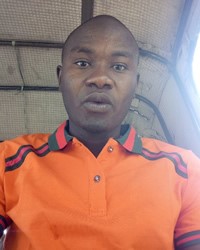Glavda in Nigeria

Photo Source:
Anonymous
|
Send Joshua Project a map of this people group.
|
| People Name: | Glavda |
| Country: | Nigeria |
| 10/40 Window: | Yes |
| Population: | 58,000 |
| World Population: | 67,600 |
| Primary Language: | Glavda |
| Primary Religion: | Ethnic Religions |
| Christian Adherents: | 20.00 % |
| Evangelicals: | 3.00 % |
| Scripture: | Portions |
| Ministry Resources: | Yes |
| Jesus Film: | Yes |
| Audio Recordings: | Yes |
| People Cluster: | Chadic |
| Affinity Bloc: | Sub-Saharan Peoples |
| Progress Level: |
|
Introduction / History
The Glavda people, also known as the G'lvaxdaxa or Glaghavdaha, are an ethnic group primarily residing in the Gwoza [East] Local Government Area of Borno State in Nigeria and parts of Northern Cameroon. Their history dates back to ancient times, perhaps as far back as 1500 BC and their origin and culture have been shaped by various influences.
Their origins can be traced to early inhabitants of the Lake Chad region, which includes parts of present-day Nigeria, Cameroon, Chad and Niger. They are one of the indigenous groups in the area, sharing a common history with other ethnic groups such as the Kanuri, Shuwa Arabs, and Mandra.
Over time, the Glavda people experienced several migrations and settlements due to factors like environmental changes, conflicts, and social interactions. They have been influenced by neighboring ethnic groups, such as the Kanem-Bornu Empire, which played a significant role in their cultural development.
The Kanem-Bornu Empire (8th-19th Century): The Glavda people were part of the Kanem-Bornu Empire, which was one of the most influential states in the Lake Chad region. This empire united various ethnic groups, including the Kanuri, Toubou, and others. The Glavda people adopted the Kanuri language as their primary means of communication and were influenced by the Kanuri culture, religion, and political system.
During the Colonial Period in the late 19th and early 20th centuries, the Glavda people came under the influence of European colonial powers, primarily Britain and France. The British colonized the northern part of the Lake Chad region, which included the Gwoza Local Government Area in Nigeria, while the French colonized the northern parts of Cameroon. This period led to the division of the Glavda people between Nigeria and Cameroon.
After gaining independence, Nigeria and Cameroon established their political systems, which affected the Glavda people. In Nigeria, they became part of Borno State, while in Cameroon, they were incorporated into the Far North Region. This division further shaped their cultural, social and economic development.
What Are Their Lives Like?
The Glavda people are predominantly farmers and herders, relying on agriculture and livestock for their livelihoods. They practice subsistence farming, growing crops such as millet, sorghum and yams. Additionally, they raise cattle, sheep and goats. Men also make leather goods, weave and build homes.
Their women take care of the children and household, cook, and make clay pots.
What Are Their Beliefs?
Most Glavda believe in a single god who is the creator of all things and who keeps his creation in order. They believe this god only intervenes with creation when order has been disturbed. They pray to their ancestors, whom they believe will intercede on their behalf. The Glavda believe the Earth has birthed all supernatural beings, including thunder and lightning and some inanimate objects.
Although the Glavda have shown some interest in Christian teachings, only a small percentage of them have accepted Jesus as Savior. A few of the ethnic groups in the area are being targeted by mission agencies; others have no missionaries working among them.
What Are Their Needs?
Only the gospel of Mark has been translated into their language. Today no Christian radio or television broadcasts are being aired in the Glavda language. Most of the Glavda have never heard a clear presentation of the gospel. There is a need for more laborers and evangelistic materials in their language. They need to know that the Creator is not an impersonal god, but rather a loving Savior who wants them free from the spirit world.
They need access to land and economic opportunities.
Prayer Points
Pray for a complete and accurate Bible in the Glavda language.
Pray for them to have the spiritual hunger it takes to seek and find Jesus Christ.
Pray the Glavda people will understand they must forsake ancient spirits that keep them from experiencing Christ's abundant life.